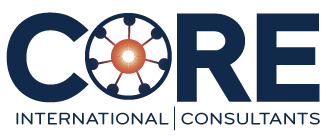I have been talking to a lot of people in the oil patch who are nervous about what is going to happen to people, should the industry face a real longer term adjustment of its economics. Some might hope (and pray) that it is a business cycle that we have seen and lived through before and that the price of oil will eventually rebound. Unless of course, like subscribers to Black Swan events might describe, we are all a bunch of turkeys expecting our next feeding and it happens to be Thanksgiving season. No one seems to know how low and for how long this current turn will go. If they claim they do, why didn’t they see it coming in the first place? And if they did, did they ignore them in the bliss of good times and denial that it could ever change?
On the talent and people front, the issue is basically similar, but worse.
The issues folks are grappling with are about making intelligent people choices in unforgiving economic times.
- Who do we cut?
- How do we optimize who we keep?
- Can we still be ready for when the business cycle will improve?
Just because there may be less work due to reduced investments, it does not mean the work remaining is less hard, complex, challenging or does not have the opportunity to drive new growth. (Yes, yes, that is called innovation.)
And the big fail point is the belief (not fact) that past performance is the best predictor of future performance. This belief can only hold true if conditions in the near future are pretty much going to be similar to those as in the past. This is what most hiring and most high-potential programs are based upon. And why executive and high-potential promotions fail, at least half of the time, despite the major investments in this. If the slide in oil prices are any indication, who knew? And who knows now?
How do we move forward in a way that is better than a guess, hope or prayer with a 50:50 shot of success?
Match level of complexity of work with level of complexity of capability.
We can reasonably assert that the nature of work is not inherently changing – it is still the application of human judgment in the completion of a task within a given time frame. Therefore, work will continue to exist at discrete levels of complexity.
And human beings, from what I can tell, still can operate at these discrete levels of complexity and develop from one level to another given appropriate time and experience. The rate of this change or development has not been observed to be changing or facing a quantum or step change.
If you base your talent strategy on these measurable and lasting discoveries of work and human capability, you may actually outperform the market by design: the design of your organizational structure, management system, and the matching of people with the right capability to handle that kind of work, no matter what it is. And we have seen this drive above average performance, time and again (See our blog by Paul Tremlett http://bit.ly/1yjdbzc.)
Now, I am not discounting the importance of knowledge and skills. But we do know that the human capability to learn and develop is demonstrating a quantum leap and step change in how knowledge and skills can be acquired and how fast. It remains only an insurance factor, not predictive of future success.
Put another way, it is not past performance in a job so much as past performance of a certain level of complexity of work that will predict future success in a role with a given complexity of work. If you can get an objective measure of potential based on that, then you can be more reasonably assured that a person placed in their next future role, even if they have not done that specific job before, will actually be able to succeed.
And we know that you can do that.

